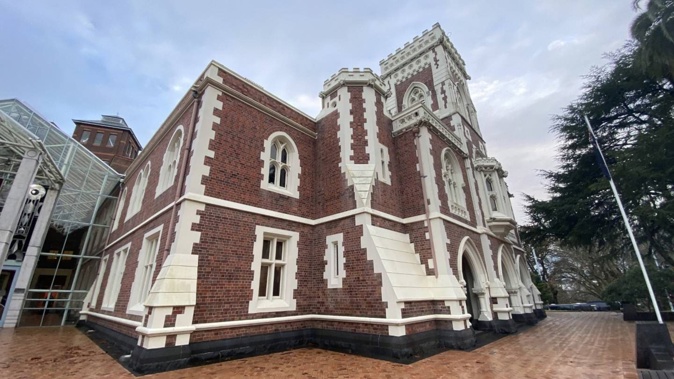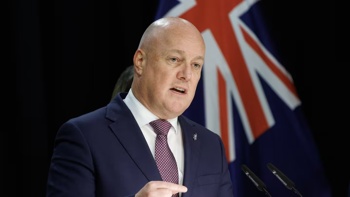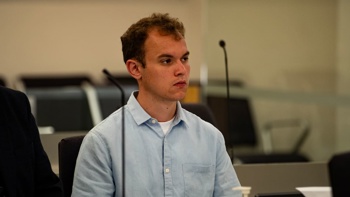
Justices in the second-highest court in Aotearoa have upheld part of an appeal by a domestic violence victim who was ordered to pay costs to her abuser.
The Court of Appeal verdict, released last night, addressed a two-pronged appeal under the Care of Children Act 2004 (CoCA) and Domestic Violence Act 1995 (DVA), ultimately allowing the appeal against paying costs under the first Act and denying the latter.
The case stems from an earlier High Court judgment where the woman was ordered to pay costs after her appeal over a decision not to grant a protection order against the man was declined.
Although he was found by the lower courts to have been psychologically abusive, the courts did not impose a protection order.
Both parties have name suppression.
Family Court
The woman had initially sought a protection order under the DVA, founded largely on allegations of psychological abuse, in the Family Court.
Both parties made competing applications under the CoCA as to where the child should primarily reside, the school the child should attend and appropriate parenting orders.
The Judge concluded in that case that family violence had been perpetrated in the form of psychological abuse, however, determined a protection order was not necessary as he said she did not have a “reasonably held subjective fear of future violence”.
Regarding the CoCA applications, the Judge concluded that the mother’s proposal was the only one that offered any sustainability.
Accordingly, the mother would have day-to-day care of the child and the father would have them every second Thursday until the following Monday morning.
The father appealed the Family Court’s decision regarding the CoCA issues and the mother filed a cross-appeal regarding the protection order rejection.
High Court
The father sought care of his child four nights per week and that she attend a nominated primary school in his suburb and the mother argued the lower court erred in declining to grant a protection order.
Following this the father filed a notice of intention to support the Family Court’s decision in respect of the protection order, later asserting it was wrong to make a finding that there had been domestic violence.
The High Court Judge upheld the Family Court’s finding on appeal that there was psychological abuse amounting to domestic violence but also concluded it was open to the earlier Judge to reach the view that the protection order was not necessary.
He also upheld the earlier court’s view that primarily living with the mother was in the child’s best interest, however, the Judge varied the parenting orders to give the father more weekend time with the child.
Following this the father sought costs for the appeal, cross-appeal and his former partner’s unsuccessful application for leave to bring another appeal.
Overall, the Judge awarded $13,491 in costs in favour of the father, in doing so rejecting the mother’s assertion that she had been effectively successful in the appeal under the CoCA.
“He acknowledged that while the court rejected a number of the grounds advanced by [the father], nonetheless, the orders made in the Family Court were adjusted in [his] favour,” the ruling said.
The Judge also granted the man costs in relation to the DVA appeal but with a 50% reduction.
Court of Appeal
Legal counsel for the woman, Ben Keith, submitted the High Court’s costs decision was wrong in principle and contrary to the purposes of the two Acts.
Also, he argued that the court erred in dismissing the mandatory considerations in the two Acts, specifically under s4(1) of the CoCA, all decisions are subject to the requirement that the best interests of the child are the “first and paramount consideration”.
Keith submitted that both Acts should be read consistently with the UN Convention on the Elimination of All Forms of Discrimination Against Women, saying that the convention has been interpreted to emphasise access to justice and that survivors should not be subjected to court costs.
He noted that costs orders in Family Court proceedings are only made in exceptional circumstances in the UK.
Lawyer for the respondent, Simon Jefferson KC, submitted that a distinction should be drawn between costs arising in the first instance, for example, those occurring in Family Court compared to those on appeal.
He said the High Court did have regard for the statutory principals to the extent they were relevant and there was no evidence that an award of costs would act as an obstacle to the parties from accessing the courts in the future.
In their decision, Justices Sarah Katz, Rachel Dunningham and Thomas Gault noted that while there was an interrelationship between the two appeals it was important to distinguish between them.
The Justices concluded that the High Court Judge had erred in determining the father had been the successful party in the CoCA appeal and accordingly set aside the costs award regarding that appeal - around $6500 in disbursements and costs.
On the DVA appeal, the Judges did not consider that a costs order on an unsuccessful appeal could be contrary to the purpose of the Act by deterring others from making such applications.
“We also cannot see that the imposition of costs on appeal would deter [the mother] from seeking protection in a case of further family violence.
“While we acknowledged that [the father’s] challenge to the finding of family violence was also unsuccessful, and it would have been open to the judge to decide the costs should lie where they fall on appeal.”
Therefore this appeal was dismissed.
“As both parties have had some success on appeal, costs are to lie where they fall,” the Justices wrote.
Katie Harris is an Auckland-based journalist who covers issues including sexual assault, workplace misconduct, media, crime and justice. She joined the Herald in 2020.
Take your Radio, Podcasts and Music with you









